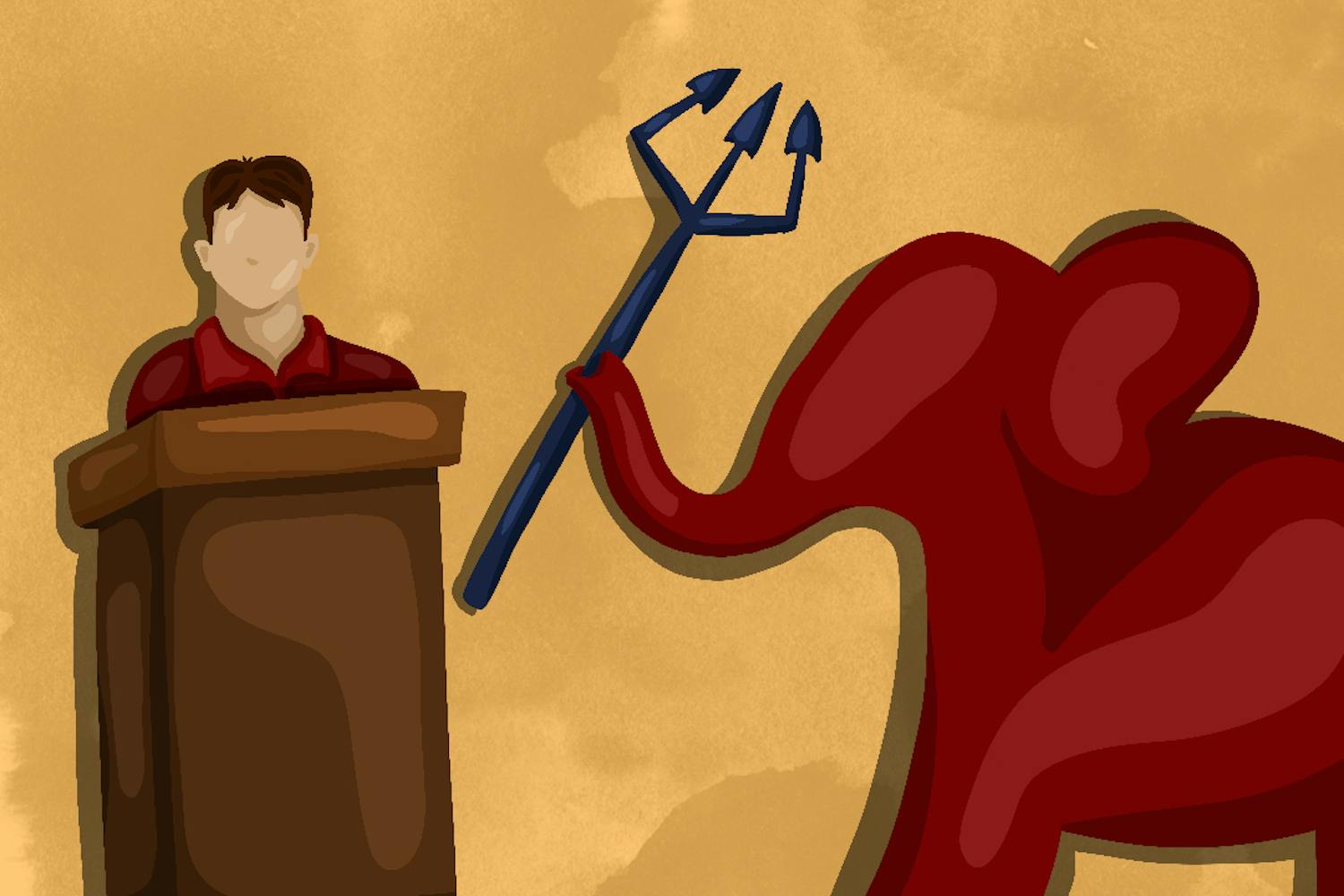Recent political rhetoric has been heavy on a singular phrase, which is often used, yet rarely defined: “big government.” The phrase is thrown around frequently, always in a different context. The intended connotation of fear and anxiety, of a “big brother” state is lost on me, much to the dismay of conservatives and right-wing advocates.
But calls from the right for a less bureaucratic rule aren’t completely wrong — they’re simply misguided and fed by repetitive slogans that appeal to emotion rather than logic, as is often the case with conservatives.
Last week, Gov. Jan Brewer gave her annual State of the State Address, where she described Arizona as “a ship that was sinking, weighed down by overspending and expanding bureaucracy.”
Unsurprisingly, her speech contained the same type of language describing a federal government that is “threatening our personal liberties” and “living beyond its means.”
Many politicians and lobbyists use this language yet fail to define what it actually means. This is because depending on who you ask, “big government” could have a completely different meaning.
When Brewer accuses Washington of “threatening our personal liberties,” she may be referring to actions taken by the Obama administration, like the government-mandated health care bill.
From this standpoint, it is the “personal liberty” of the 50,000,000 Americans currently without health insurance to remain uninsured.
Which is ironic if government should quit “trying to be everything to everyone,” as Brewer states in her speech.
To other Americans, legislation that restricts social freedoms may be considered symptomatic of “big government” interfering with our lives.
Recent polls show that a majority of Americans support gay marriage and the legalization of medicinal marijuana, yet the federal government consistently rules against favorable legislation on these issues, both of which are vehemently opposed by the right.
According to conservatives, government oversteps its boundaries when requiring Americans to have health insurance, but is perfectly within its limits to regulate marriage between two consenting adults and what doctors may prescribe to terminally-ill patients.
Examples of how Republicans contradict themselves when warning of government interference are numerous, ranging from complaints of rampant regulation that thwarts private-sector growth, to accusing the current administration of excessive-taxation.
You know, the kind of “rampant regulation” that caused the BP oil spill in the summer of 2010, dumping 5,000,000 barrels of crude oil into the Gulf of Mexico.
And as for Obama’s “excessive-taxation” — get ready for this one — his administration has cut more taxes in his first three years in office than Bush did in his entire first term.
Furthermore, Republicans are strongly opposed to thinning out the defense budget, despite the fact that in 2010, it consumed 20 percent of the federal budget, financed by federal tax revenues. Yet its completely appropriate to cut funding for education, which comprises only 3 percent of the budget.
My point here is that when Republicans warn of “big government”, what they are really expressing is a fundamental difference in perspective of the government’s role in our lives.
So, let’s ask ourselves, is government “living beyond its means” when requiring that we have health insurance? When regulating industry to ensure our air and water are safe from pollution? When using taxpayer money to fund education?
Republicans sure seem to think so.
Reach the columnist at damills3@asu.edu
Click here to subscribe to the daily State Press newsletter.



